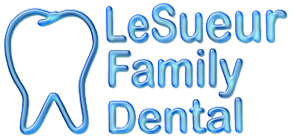So you skipped a couple of days and nights of brushing your teeth. What’s the big deal, right? You might be unpleasantly surprised to find out what happens if you don’t brush your teeth. It is a huge deal for your oral health if you skip brushing your teeth.
It could be quite tempting to wonder what would happen if you just chucked your toothbrush for the day and said, “I am not brushing my teeth today!” While it may seem tedious to most, brushing your teeth at least twice every day is essential for optimal dental health. Brushing your teeth helps in removing food particles and prevents plaque from forming.
So, what really happens if you don’t brush your teeth for a day? Or a week? Or a month? Or a YEAR?
What Happens If You Don’t Brush Your Teeth? – A Timeline

What Happens If You Don’t Brush Your Teeth for Two Days?
Your mouth is a moist center full of bad bacteria and good bacteria. Brushing your teeth daily helps keep an optimal balance between these bacteria and maintain oral health.
For the first one or two days, it may not seem like a big deal, missing your oral hygiene routine. However, the plaque in your mouth will have already hardened within the first forty-eight hours. Your teeth will start to feel incredibly filmy, and the bacteria will have ample opportunity to overproduce and cause plaque that will begin hardening into tartar. This would start the breakdown of your tooth’s exterior layer or enamel.
What Happens if You Don’t Brush Your Teeth for a Week?
After a week of failing to brush your teeth, you will notice even more changes in your oral cavity. The plaque production will significantly increase, and your teeth will begin to feel increasingly slippery due to the plaque film on the surface.
You will also be able to see the plaque buildup on your gumline and teeth. Bad breath will develop after a week of not brushing your teeth. This is the early stage of tooth decay. Your dentist might even be able to spot signs of gingivitis.
What Happens if You Don’t Brush Your Teeth for a Month?
Gum disease is the most notable problem you will face after one month of not brushing your teeth. At this point, tooth decay will likely advance to your tooth’s inner parts. With an increased plaque build-up above and below the gumline, you will notice redness and swelling in your gums.
Early gum disease (gingivitis) can be addressed with good oral hygiene practices and a visit to the dentist. Ignoring the problem, however, will lead to a progression in your gum disease and cause periodontitis.
What Happens if You Don’t Brush Your Teeth for One Year?
At about a year, you will have done serious damage to your teeth by not brushing them. Your tooth decay and gum disease will have become much more advanced, leading to receding gums and possible tooth loss.
An extreme bacterial build-up in your mouth can also weaken your immune system, leaving you prone to other infections and illnesses.
4 Risks to Your Oral Health From Not Brushing Your Teeth

If you go without brushing your teeth for a while, the after-effects will begin without warning, possibly leading to terrifying consequences.
Here are four risks to your oral health by not brushing your teeth.
Cavities
Plaque formation on your tooth’s surface can lead to severe cavities that cause pain while eating or drinking. Cavities can also cause extreme tooth decay that can reach the insides of your teeth, leading to an infection of tissues or the loss of your tooth entirely.
Bad Breath
Halitosis, or bad breath, results from poor oral hygiene practices. Your mouth is a breeding ground for bacteria that feed off the food debris on your teeth and produce sulfur compounds as a by-product. This leads to a foul odor that can be extremely unpleasant and off-putting.
Gum Disease
Another major oral health issue that occurs if you don’t brush your teeth is gum disease. Your gums will become inflamed, leading to the loss of bone and tissue that help support your teeth. This can also deteriorate your jawbone and facial structure.
Tooth Loss
A significant risk of not brushing your teeth daily at least two times a day is the risk of tooth loss. Losing your natural teeth due to a lack of oral hygiene can prove to be quite costly, as tooth replacement options can get pricey.
Other Health Problems Tied to Not Brushing Your Teeth
Most dentists warn you about the dental problems you will face from not brushing your teeth. But did you know that failing to clean your teeth allows oral bacteria to travel throughout your entire body?
Not brushing your teeth leaves you susceptible to other diseases and conditions, such as:
Heart Disease: According to experts, people suffering from gum disease or missing teeth are much more likely to suffer from an increased risk of heart-related conditions such as coronary artery disease.
Diabetes: Gum infections can increase your blood sugar, making diabetes more difficult to control.
Pneumonia: Not brushing your teeth and having an overgrowth of bacteria in your oral cavity can lead to inhalation of microbes into your lungs, causing problems such as pneumonia.
Pregnancy Complications: Expectant mothers with oral health issues are more likely to have children that easily develop cavities. Systemic inflammation from poor oral hygiene can also induce early labor.
Mouth & Stomach Ulcers: Poor oral health and tooth decay can cause ulcers along your gumline. These ulcers contain a bacteria called helicobacter pylori that is often associated with ulcers along the stomachline as well.
Takeaway
Now you know what happens if you don’t brush your teeth and the number of problems this bad habit can cause. Along with carrying out a diligent oral care routine at home, it is also important to visit your dentist every six months for routine cleanings and exams. Your dental team can spot oral issues early on, making them easier to manage.
To learn more about what happens if you don’t brush your teeth and how to maintain and manage your oral hygiene, contact LeSueur Family Dental today.

